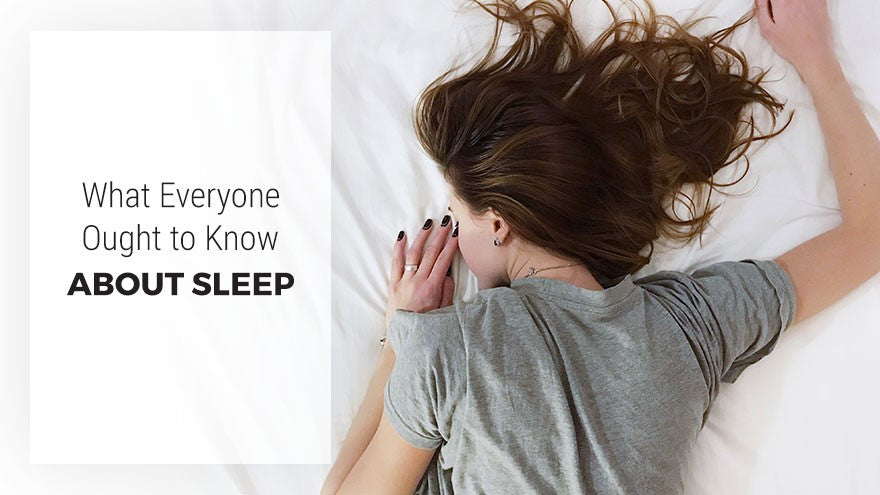Certain facts about how to get better sleep ought to be common knowledge, but aren't known by many people. If you want to enjoy terrific slumber, note these tips so you're not left tossing and turning in the wee hours.
Poor Sleep Is A Signal
Lack of sleep indicates you need to make a change. Just as pain is a symptom of an underlying cause, so is insomnia. Find the reason you can't sleep, make amends, and you'll no longer experience insomnia.
Ask yourself the following questions about your health and lifestyle: Am I stressed? Am I too inactive or overactive during the day? Is my mattress uncomfortable? Am I taking any medications with side effects that include insomnia? Asking these questions and others in the same vein will help you identify the root cause of the problem and figure out ways to sleep better.
For a long time, eight hours of sleep per night was the golden standard of slumber. Recently, however, studies have shown that anywhere from seven to nine hours is sufficient for most adults. There are also outliers that can function on as few as six hours or thrive on as many as ten.
Another factor to consider is whether you nap during the day. Having even a short nap in the afternoon can greatly improve wakefulness, but may also affect how long people need to sleep at night (which could explain the six hour outliers). The amount of sleep you need really just depends on personal preference, so if you're not satisfied with your level of alertness throughout the day, you should vary how many hours you sleep at night until you find your sleep sweet spot.
Finding your rhythm is crucial for your health. Lack of sleep, and even oversleeping, can lead you to feel groggy, have slower reaction times, feel irritable and unfocused and even deplete your immune system. When you find your body's natural sleep rhythm, stick to it! Your well being depends on it.
Many people with insomnia began their descent into sleeplessness after their sleep pattern was broken several times. They might have worked the late shift, watched late TV shows several nights running or taken medicine that affected sleep.
Not getting enough sleep upsets people; they recognize how bad it makes them feel. As a result, they start to worry about not sleeping and stress makes their fears come true.
Getting back on track can be as easy as sticking to a routine — such as going to bed at 10 p.m. and rising with the sun, for about five days. Alternatively, listening to relaxing brainwave entrainment can reduce anxiety and retrain you to sleep. Just remember to ask yourself what the root of the problem might be. Once you can identify and address it, you'll be able to return to a healthy sleep schedule.
Another common cause of sleeplessness is an old or uncomfortable mattress. Aviya has the solution, with mattresses that sleep cool, feel roomier than other brands and have the support you need to wake up feeling great. We spend up to a third of our lives asleep — make the most of that time with the best luxury mattress online.
Poor Sleep Is A Signal
Lack of sleep indicates you need to make a change. Just as pain is a symptom of an underlying cause, so is insomnia. Find the reason you can't sleep, make amends, and you'll no longer experience insomnia.Ask yourself the following questions about your health and lifestyle: Am I stressed? Am I too inactive or overactive during the day? Is my mattress uncomfortable? Am I taking any medications with side effects that include insomnia? Asking these questions and others in the same vein will help you identify the root cause of the problem and figure out ways to sleep better.
You Need Up To Eight Hours A Night
For a long time, eight hours of sleep per night was the golden standard of slumber. Recently, however, studies have shown that anywhere from seven to nine hours is sufficient for most adults. There are also outliers that can function on as few as six hours or thrive on as many as ten.
Another factor to consider is whether you nap during the day. Having even a short nap in the afternoon can greatly improve wakefulness, but may also affect how long people need to sleep at night (which could explain the six hour outliers). The amount of sleep you need really just depends on personal preference, so if you're not satisfied with your level of alertness throughout the day, you should vary how many hours you sleep at night until you find your sleep sweet spot.
Finding your rhythm is crucial for your health. Lack of sleep, and even oversleeping, can lead you to feel groggy, have slower reaction times, feel irritable and unfocused and even deplete your immune system. When you find your body's natural sleep rhythm, stick to it! Your well being depends on it.
Fear Of Not Sleeping Can Cause Insomnia
Many people with insomnia began their descent into sleeplessness after their sleep pattern was broken several times. They might have worked the late shift, watched late TV shows several nights running or taken medicine that affected sleep.
Not getting enough sleep upsets people; they recognize how bad it makes them feel. As a result, they start to worry about not sleeping and stress makes their fears come true.
Getting back on track can be as easy as sticking to a routine — such as going to bed at 10 p.m. and rising with the sun, for about five days. Alternatively, listening to relaxing brainwave entrainment can reduce anxiety and retrain you to sleep. Just remember to ask yourself what the root of the problem might be. Once you can identify and address it, you'll be able to return to a healthy sleep schedule.
Get Better Sleep With A Luxury Mattress From Aviya
Another common cause of sleeplessness is an old or uncomfortable mattress. Aviya has the solution, with mattresses that sleep cool, feel roomier than other brands and have the support you need to wake up feeling great. We spend up to a third of our lives asleep — make the most of that time with the best luxury mattress online.

